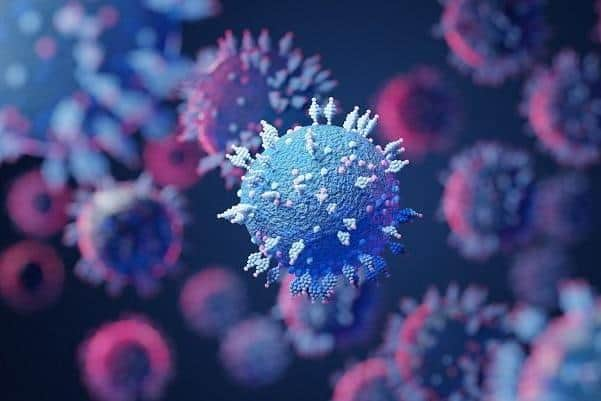Leeds scientists find new type of UV light can efficiently kill microbes which cause Covid 19
and live on Freeview channel 276
The result suggests that this light, known as Far-UVC, could be used to significantly reduce the risk of person-to-person indoor transmission of hospital-acquired infections as well as airborne diseases such as COVID-19 and influenza.
Published in Nature Scientific Reports, the research carried out by the Universities of Leeds, St Andrews, Dundee and Columbia University in New York with NHS Tayside is the first study to measure the performance of Far-UVC under full-scale conditions.


Advertisement
Hide AdAdvertisement
Hide AdThe researchers released an aerosolised bacteria known to be harder to inactivate than the SARS-CoV-2 virus which causes COVID-19, into a room-sized chamber and then tested the level of microbial reduction when it was exposed to the Far-UVC light.
The trials, held at a bioaerosol facility at the University of Leeds, found that Far-UVC light rapidly and continuously reduced levels of airborne microbes with a 92% – 98% reduction recorded even when the bacteria aerosol was continuously introduced.
Dr Louise Fletcher, of Leeds’ School of Civil Engineering, said: “Our bioaerosol facility at Leeds provides a unique environment for this type of research.
“The facility is a sealed chamber the size of a single-occupancy hospital room where different types of building ventilation and devices can be implemented to test the potential effectiveness of approaches like Far-UVC in a full-scale situation.”
Advertisement
Hide AdAdvertisement
Hide AdThe team received a grant of £136,000 from the UK Health Security Agency to carry out the trials - and they will continue their research into the safety and efficacy of Far-UVC lights through two recently awarded grants totalling £270,000 from the UK Health Security Agency and NHS Scotland Assure.
The results coincide with a decision by the US agency which decides on safety regulations for UV light, the American Conference of Governmental Industrial Hygienists, to increase the allowable Far-UVC light exposure in the US seven-fold.
Support the YEP and become a subscriber today. Enjoy unlimited access to local news and the latest on Leeds United, With a digital subscription, you see fewer ads, enjoy faster load times, and get access to exclusive newsletters and content. Click here to subscribe.
